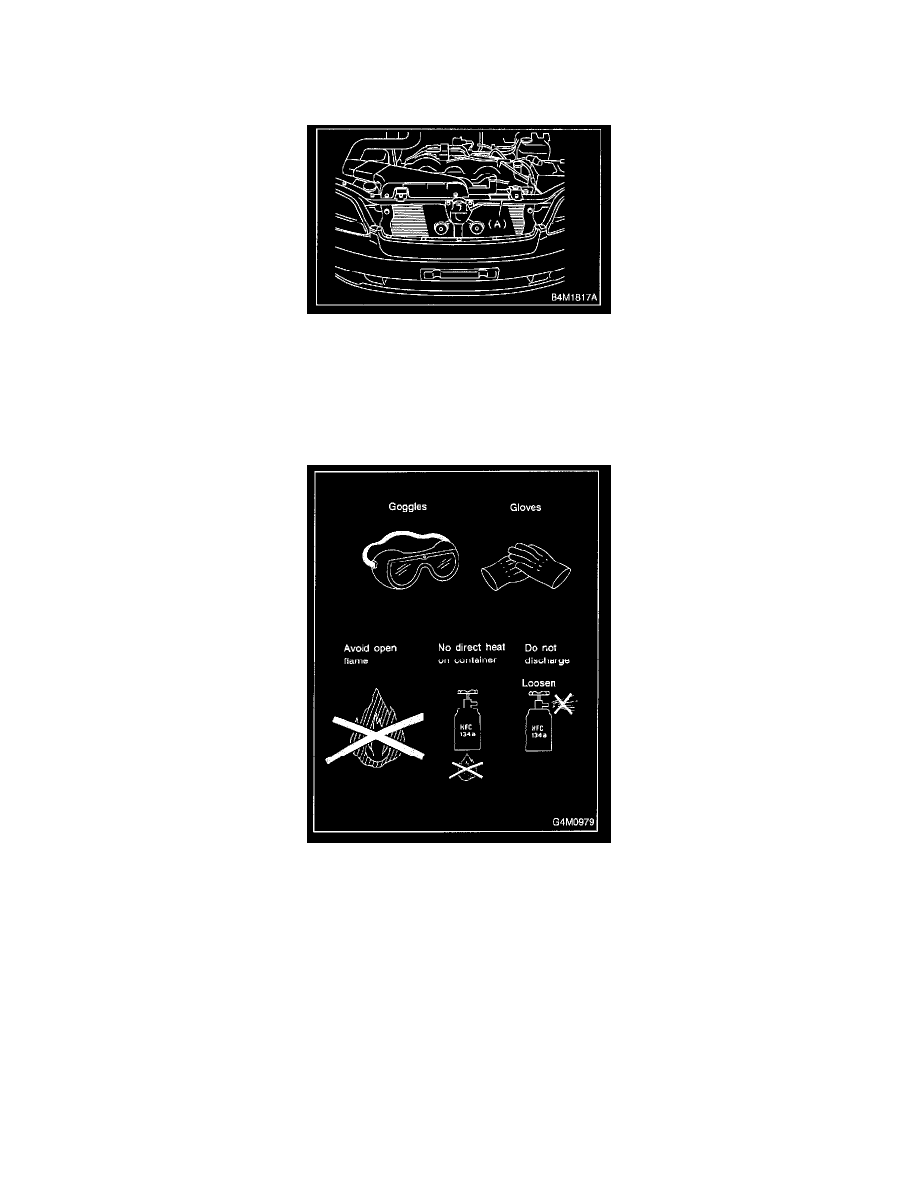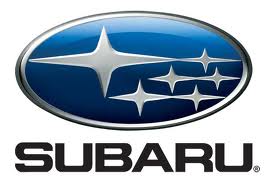Legacy Outback Ltd Sedan AWD F4-2.5L SOHC (2001)

Refrigerant: Service Precautions
1. HFC-134a A/C SYSTEM
-
Unlike the old conventional HFC-12 system components, the cooling system components for the HFC-134a system such as the refrigerant and
compressor oil are incompatible.
-
Vehicles with the HFC-134a system can be identified by the label "A" attached to the vehicle. Before maintenance, check which A/C system is
installed in the vehicle.
2. REFRIGERANT
-
The HFC-12 refrigerant cannot be used in the HFC-134a A/C system. The HFC-134a refrigerant, also, cannot be used in the HFC-12 A/C
system.
-
If an incorrect or no refrigerant is used, poor lubrication will result and the compressor itself may be damaged.
3. HANDLING OF REFRIGERANT
-
The refrigerant boils at approx. -30 °C (-22 °F). When handling it, be sure to wear safety goggles and protective gloves. Direct contact of the
refrigerant with skin may cause frostbite.
If the refrigerant gets into your eye, avoid rubbing your eyes with your hands. Wash your eye with plenty of water, and receive medical
treatment from an eye doctor.
-
Do not heat a service can. If a service can is directly heated, or put into boiling water, the inside pressure will become extremely high. This
may cause the can to explode. If a service can must be warmed up, use hot water in 40 °C (104 °F) max.
-
Do not drop or impact a service can. (Observe the precautions and operation procedure described on the refrigerant can.)
-
When the engine is running, do not open the high-pressure valve of the manifold gauge. The high-pressure gas will back-flow resulting in an
explosion of the can.
-
The refrigerant is non-toxic and harmless under normal operating circumstance, but it may change to phosgene (a noxious fume) under open
flames or high temperatures (caused by a cigarette or heater).
-
Provide good ventilation and do not work in a closed area.
-
Never perform a gas leak test using a halide torch-type leak tester.
-
In order to avoid destroying the ozone layer, prevent HFC-134a from being released into the atmosphere. Using a refrigerant recovery system,
discharge and reuse it.
